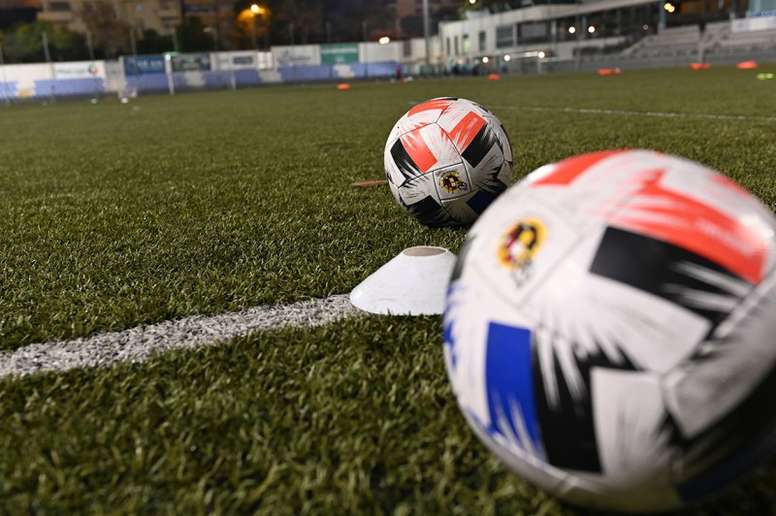Sports Betting Regulations
Sports Wagering and Paid Fantasy Sports
(h) “Sports pool” means the business of accepting wagers on collegiate or professional sporting events or athletic events or other similar events. (i) “Wagering account” means an electronic account th at may be established by a patron at a casino property for the purpose of wagering pursuant to these regulations, including deposits. Michigan Lawmakers Approve Regulations for Mobile Sports Betting, Online Casinos. Posted on: December 2, 2020, 10:31h. Last updated on: December 2, 2020, 11:11h.

The Sports Wagering and Paid Fantasy Sports Division is responsible for administering and regulating sports wagering and paid fantasy sports in Indiana. Paid fantasy sports was established by Senate Enrolled Act 339-2016 and is contained within Indiana Code § 4-33-24. Sports Wagering is established by House Enrolled Act 1015-2019 and is contained within Indiana Code § 4-38.

The IGC will thoughtfully develop an application and regulatory framework for sports wagering. By statute, the earliest date in which sports wagering can be offered September 1, 2019 and is subject to regulatory approval. The IGC is committed to making this process transparent and to creating a strong regulatory environment that ensures the integrity of these activities in Indiana.
Relevant information will be continuously posted to our website. It is recommended that interested parties subscribe to email updates through our website in order to remain apprised of new information as it becomes available.
Sports Betting Regulations In Nevada
Please do not hesitate to contact our office with any questions, 317-233-0046.
If you have information related to a sports wagering integrity issue, you may email the tip line at sportswagering@igc.in.gov or call 1-800-715-3810. We will keep sources of information confidential.
Sports Betting Regulations Usa
Sports Wagering
List of Current Sports Wagering Licensees
Contact Information for Indiana Sportsbooks
List of Current Sports Wagering Registrants
Paid Fantasy Sports

- PFS Game Operator License Application
The cost of investigation or reinvestigation under IC 4-33-24-17 is billed at $65.00 per hour.
Following the recent Supreme Court decision to legalize sports betting in the United States, individual states have been hotly debating legalization in their own jurisdictions.
In addition to West Virginia, states with legal sports betting include:
- Nevada
- New Jersey
- Pennsylvania
- Delaware
- Mississippi
- Rhode Island
This is set to be a great tax earner for each state as residents will no longer be participating in illegal sports betting. It was estimated by the American Gaming Association that $150 billion was illegally wagered on sports events every year in the United States.
West Virginia sports betting
Currently, there are three active sportsbooks in West Virginia:
Additionally, Delaware North, the owner of Wheeling Island Sportsbook and Mardi Gras Casino Sportsbook, is severing ties with its sports betting provider, Miomni after being forced to close operations in March 2019. It is currently on the hunt for a new sports betting provider.
Sports Betting Legislation
West Virginia was without sports betting for about five months. On Aug. 26, 2019, FanDuel Sportsbook launched its popular sports betting platform bringing mobile betting access to bettors throughout the state.
Two days later, the state doubled its online access when DraftKings Sportsbook went live. Now, the West Virginia online sports betting market has the necessary competition to thrive.
Federal regulations
The Supreme Court brought about full-scale legalization of sports betting when a 6-3 vote overturned a 26-year-old law that prevented the majority of states from providing sports betting to their residents.
The case was being pushed by New Jersey, and it met major resistance along the entire process, with the major sports leagues such as the NBA, NFL, NHL, MLB, and NCAA all lobbying aggressively against the change.
It was on May 14, 2018 that the 1992 bill (called the Bradley Act, or the Professional and Amateur Sports Protection Act) was finally struck down, which allowed 46 states the power to offer full sports betting.
Nevada had been allowed to offer full sports betting all along, with Montana, Delaware, and Oregon able to provide a limited sports wagering offering as part of their state lotteries under the 1992 bill.
As part of this decision, the power is now in the hands of each individual state to decide if they want to legalize sports betting in their own jurisdiction.
State-level regulations
Although many West Virginia residents could use offshore online casinos, and the state had been debating the introduction of an online lottery, up until this year there was no legal form of online gambling in the state. This has now changed with the introduction of a new bill.
There had been talks in the state since early 2017 about introducing some form of sports betting legislation. It was in March 2018, in anticipation of the Supreme Court decision, that West Virginia finally passed a new sports betting law.
The West Virginia Sports Lottery Wagering Act was easily passed by the state House and Senate. This came despite Governor Jim Justice not signing the bill. The MLB commissioner had called for the bill to be vetoed, but to no avail.
It only took six weeks after its introduction to be passed into law. This law gave permission to five gambling premises in the state to provide sports betting offerings at their locations as well as through mobile apps and other online venues in return for a $100,000 license fee. As per the new bill, “No more than five licenses to operate a gaming facility with West Virginia Lottery sports wagering shall be permitted in this state.”
A West Virginia Lottery sports wagering license “authorizes the operation of West Virginia Lottery sports wagering at locations and through any mobile application or other digital platforms approved by the commission.”

The presence of only five casinos in the state therefore won’t dampen the potential upside of sports betting legalization as players from all areas in West Virginia can now place sports bets online.
There have been subsequent hurdles for sports betting legalization in West Virginia, as Justice wanted to include language that was kinder to sports leagues in the legislation.
He held a summit with sportsbook and casino operators, state universities, and sports leagues to discuss the matter. Calls for universities and sports leagues to receive an integrity fee were eventually shut down by the legislature.
Legal WV sports betting operations
The legalization of online sports betting in West Virginia will help decrease the amount of money the local economy loses as a result of being wagered with illegal operators.

Instead, the state can earn tax revenue from sports betting, which can be used for positive initiatives in the region. Those residents who have used illegal sports betting operators in the past will now have proper protection and can be sure their winning bets will be fulfilled.
While legalizing online gambling makes gambling more accessible and can, therefore, lead to higher levels of problem gambling, those same gamblers could have utilized offshore online gambling platforms in the past just as easily. Legalization will likely not be a catalyst for a rise in problem gambling in the state.
Sports betting and taxes in WV
The tax rate for sports betting revenues in West Virginia has been set at 10%. This is a manageable figure for the license holders compared to other states, and they will not have their profits badly eroded due to a more significant tax rate being implemented.
The 10% tax in West Virginia will be levied on the “licensee’s adjusted gross sports wagering receipts.”



